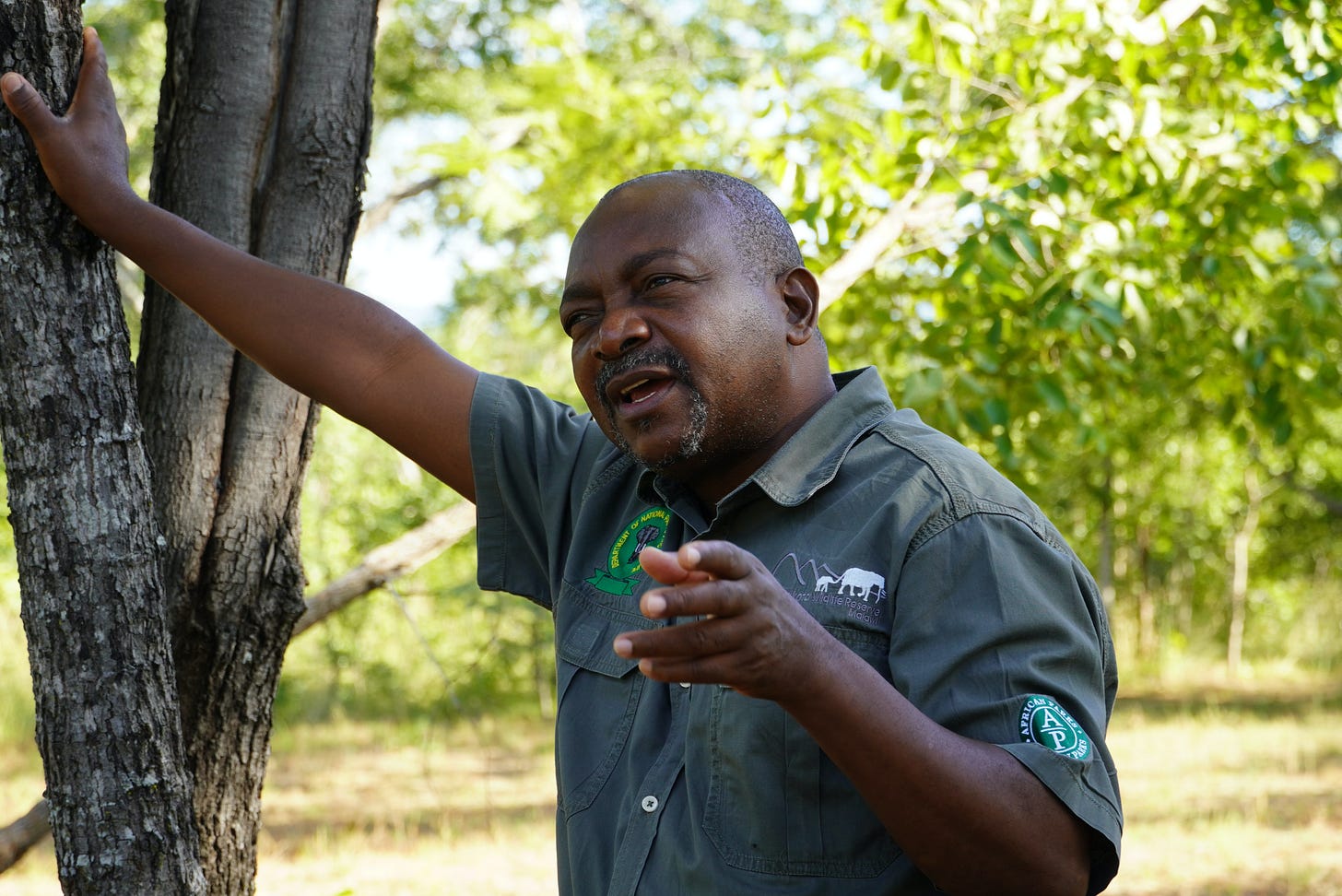Nkhotakota Wildlife Reserve Sees Surge in Revenue for 2024
Nkhotakota Wildlife Reserve is reclaiming its place as a haven for wildlife and a growing hub for eco-tourism and community development."

Nkhotakota, Malawi (Planet Defence) – African Parks, the organization managing Nkhotakota Wildlife Reserve through a public private partnership agreement with government, has reported earning approximately K106 million in revenue from tourism related activities in 2024.
The figures were revealed on Tuesday during the reserve’s 18th Joint Liaison Committee (JLC) meeting, a platform that brings together stakeholders involved in the management of the reserve, held at the Nkhotakota District Council chamber. The meeting brought together District Commissioners, traditional leaders, and other key stakeholders from the surrounding districts of Kasungu, Ntchisi, Nkhotakota, and Mzimba.
Park Manager David Nangoma attributed the growth in revenue to an increase in both local and international tourist visits following the translocation of additional wildlife species into the reserve to beef up predator and prey ratios in order to have a balanced ecosystem.
“Traffic to the reserve increased significantly after the introduction of new animals, which in turn boosted tourist numbers,” explained Nangoma during the JLC meeting.
Chairperson of the JLC, Inkosi Khonsolo of Mzimba, described the meeting as vital for assessing progress, addressing challenges, and exploring solutions in the reserve's management and development.
Nkhotakota District Commissioner, Ben Matengeni Tonho, praised African Parks for its continued dedication to wildlife conservation. He emphasized the potential of a thriving tourism sector to transform Nkhotakota from a Boma into a recognized tourism city.
“We fully support African Parks in its efforts, as their success aligns with our goal of positioning Nkhotakota as a leading tourism destination,” said Tonho.
At 1,800 km², Nkhotakota Wildlife Reserve is Malawi’s oldest and largest protected area—a vast, wooded landscape crisscrossed by three major rivers that flow into Lake Malawi.
However, by 2014, decades of ivory poaching had decimated its elephant population, leaving only around 100 individuals. What was once a thriving sanctuary had become a quiet, depleted forest.
In response, the Government of Malawi invited African Parks in 2015 to enter into a long-term partnership with the Department of National Parks and Wildlife (DNPW) to manage and restore the reserve. This marked the beginning of a bold new vision: to revive Nkhotakota as a haven for wildlife and a valuable resource for the people of Malawi.
Source - Wongani Mkandawire, Malawi News Agency



